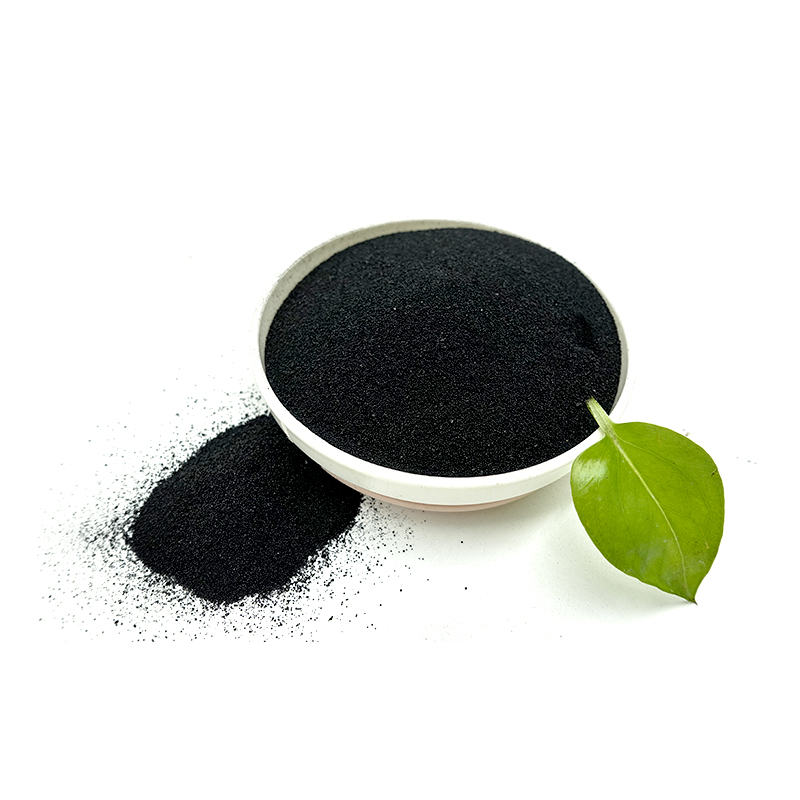Introduction to Nitro Organic Fertilizer
Nitro organic fertilizer represents a new milestone in agriculture, which applies the advantages of nitrogen fertilizer enhancement from science, yet strictly abides by the requirements of benefits provided by organic fertilizer to the environment. Nitro organic fertilizer is a fertilizer made of natural materials rich in nitrogen that plants need for rapid growth and the soil needs to improve its fertility.
Nitro organic fertilizer is playing an increasingly important role in the agricultural sector. Its great value lies in that it can fertilise the crops with nutrients and protect the organic matter content of the soil meanwhile. Jane Green, a senior agricultural expert, told us that ‘In a way of sustaining the organic matter content of the soil, feeding the plants efficiently is a derivative, a result of protecting good soil health that is capable of supporting all forms of life in the agricultural ecosystem.’
From the grower’s perspective, there are many goods that arise from using nitro organic fertilsers in farming. Firstly, the way these fertilizers release nitrogen, which is slow and corresponds to the uptake necessities of the plants, is a benefit. Other supportive effects of these fertilizers are felt in improving the physical structure of soil, the rate at which nutrients are released, which also lowers the amount of nutrients that run off as water, and reduces water loss or evaporation, while also improving the efficiency of nutrient uptake or absorption.
Understanding Soil Health
Soil health is a central consideration in good agricultural management. As such, it is essential to know the basics so as not to confuse soil with simple dirt. Healthy soil is a lively ecosystem essential to plant growth and ecological stability: it’s a biological process, not an inert object. Soil is a composite material made up of a mixture of mineral particles (primarily sand, silt and clay), organic matter, water and air. This combination is conducive to a high diversity of organisms from micro-organisms to earthworms. All this contributes to the function (the capacity of the soil to perform natural functions crucial for plant and animal health) and fertility of the soil.
What plants develop in the soil determines whether they will grow or not. Healthy soil creates an environment to help plant roots grow and can hold water in place so plant can absorb it. As Emily Carter, a soil scientist at the University of California, Santa Barbara, explains the benefits of healthy soil: Healthy soil holds water [and nutrients], keeping essential nutrients for plant growth in place near the roots and preventing nutrients from washing away with water. [This] not only helps plants grow, but also helps us save water.
Nitro organic fertilizers play an important role in soil health because they provide nitrogen and organic matter to improve the structure and dynamics of the soil, and to enrich it with water and nutrients – all characteristics of a healthier soil. By including such fertilizers into the production system, you can positively influence the soil ecosystem; a more active and efficient system coupled with more beneficial microbial communities – more microbes, more biomass and greater diversity – can contribute to disease suppression and enhanced nutrient-cycling capacities that increase the resilience of the system to abiotic and biotic stressors, ultimately sustaining higher agricultural productivity for longer periods of time and facilitating healthier, more resilient plants.

Benefits of Nitro Organic Fertilizer for Soil
Nitro Organic fertilizer significantly improve the health and sustainability of the soil in various ways. For example, soils fed with nitro organic fertilizer have enhanced nutrient availability and better soil structure. They are a rich source of nitrogen and organic matter which improves the texture of soil and its capability to retain water and nutrients.
And, as Aaron Smith, an organic agronomist and soil scientist who has co-authored studies researching these fertilizers, ‘The integration of nitro organic fertilizers into crop systems increases the cation exchange capacity of the soil, which is important for nutrient efficiencies.’ Plants are able to access the nutrients they are looking for when they need them. Compared to conventional methods, where plants often get all the fertilizer long before they need it, much of which is washed away, we are giving what plants need while they need it, increasing growth efficiencies and reducing waste.
On the other hand, nitro-organic fertilizer greatly stimulates the activity of beneficial microbes living in the soil. These microorganisms play an essential role in breaking down organic matter, nutrient recycling, and the production of humus, a highly complex organic substance that is a major factor in improving soil fertility. The greater the microbes present, the richer and more dynamic an earthworm population and the better plants grow.
This is another key reason why nitro organic fertilizers are superior to chemical fertilizers; they help us keep the soil in place and reduce soil pollution. By increasing the soil’s structure and organic matter content, these fertilizers bind the particles of the soil together, reducing particle movement and erosion. In addition, since the nutrients from nitro organic fertilizer are released slowly, the risk of losses of nutrients by leaching or runoff and percolation is reduced, thereby decreasing the risk of nutrient losses into waterways. This is particularly important if you want to increase biodiversity and meet minimum water quality standards, important factors in maximising environmental sustainability and agricultural productivity.
Benefits of Nitro Organic Fertilizer for Plant Growth
Application of nitro organic fertilizers could promote plant growth and crop yield due to the appropriate period of nutrient released from fertilizers in line with the requirements of a plants’ uptaking roots. The rate of nitrogen release was suited to meet the demand of the plants on uptake of nutrients, especially in the critical time during the plants growth.
As the plant physiologist Susan Lee explained to me: ‘We report that plants fertilised with nitro organic fertilizer tend to have stronger and healthier roots [which] relates to the increased biomass and yield.’ Also, the organic content in the fertilizers improves soil aeration, so that roots can spread out more easily to better absorb nutrients and water.
Improved immunity against pathogen attacks is another important advantage of nitro organic fertilizer for plants. With richer nutrients, their tissues become thicker and hardier so as to hinder the advancement of pests or infections. ‘Healthy plants are generally less prone to sickness, eliminating the need for chemical pesticides, which aligns with sustainable farming.’ Dr Lee adds.
Moreover, such crop produce benefits from the fact that the use of nitro organic fertilizer normally helps to improve the quality of the produce in terms of their nutritional content, flavours and shelf-life.
This will enhance both consumers and farmers’ demand while help the farmers to raise their economic value because production of quality produce enable them to sell their produce at premium prices, and the tendency are that such produce will sell faster in the market.
Therefore, through using nitro organic fertilizer to prevent environmental contamination and to achieve quality rather than quantity will be very advantageous to our environment and the economic viability of our farmers.

How to Use Nitro Organic Fertilizer Effectively
It is very important to apply nitro organic fertilizer correctly to give soil and plants more benefits. Here are some tips for using nitro organic fertilizer.
Application Timing: When to apply fertilizer will make the difference between waste and success. Applications of nitro organic fertilizer to begin the growing season, when plants are most actively growing and will require more nitrogen fertilizer for growth, will have the best probability of solving seasonal nutrient deficiencies,” tells me Lucas Grant, professor of organic crop production at the University of California, Santa Cruz. This will help with ambient applications because the added nutrients will be most available when they are needed most for the growing season.
Application: Blending the fertilizer into the soil 2-4 inches deep introduces the nutrients much closer to the plant’s roots, enabling it to better take up more of those that are available. It is possible to broadcast the fertilizer on the soil surface and then incorporate it into the soil with a light tillage. This is practical in the case of an established planting.
Dosage Considerations: Do not exceed the dosages suggested by the manufacturers to avoid over- and/or under-fertilization. “Getting the dosage right on the application of nitro organic fertilizer is not only to avoid nutrient wastage, but more so to prevent nutrient overload and pollution from happening,” says Dr. Grant.
Monitor its health: Testing the soil on a regular cadence for nutrient content and pH level can lead to more precise fertilizer application, which would be tailored to crop- and site-specific needs, avoiding over-fertilization. Adaptive management: pollinators, functional soil ecological processes, and a thriving plant ecosystem can be sustained in these ecosystems.
Avoid mistakes such as applying excessive amounts of fertilizer (‘throwing green’), and/or failing to apply it evenly (‘streaking’).
These best practices will help farmers and agro-industries use nitro organic fertilizer efficiently and sustainably – to healthier crops and soils – contributing not just to agricultural productivity but to the goal of ecological stewardship.
Conclusion
Overall, the application of nitro organic fertilizer is critical for ensuring soil’s health and promoting plants health in an environmentally friendly manner. It could boost plants growth by various benefits from the fertilizer which are beyond plant’s nanutritional needs. It create a better circumstance for a healthy ecosystem to flourish.
For this reason, according to Lucas Grant, MD, one of the leading voices in this research, ‘K graduates farmers to a form of sustainability. It permits the use of the same amount of N via a nitro organic fertilizer for further crop production while also maintaining a beneficial cycle for all three organisational levels of complexity: soil, plant and larger environmental context.’ These practices echo the components of sustainable agriculture, with reduced chemical inputs, improved soil structure, and augmented biodiversity in farm ecosystems.
On the one hand, nitro organic fertilizer is beneficial for farmers and agricultural practitioners to apply to fields in order to raise the yield and improve quality of agricultural produces. On the other hand, it is of help to advance the goal of ecological stewardship. If we follow the recommendations for using it in the meantime, make efforts to control the right amount of fertilizer by applying it on fields accurately, together that will inevitably lead to an improvement in the agricultural productivities and contribute to the environment in a healthy way.
Here are some scholarly references and articles related to nitro organic fertilizer:
- He, T.H., Yuan, J.J., Luo, J.F., Wang, W.J., Fan, J.L., Liu, D.Y., Ding, W.X. (2019). Organic fertilizers have divergent effects on soil N2O emissions. Biological Fertility of Soils, 55, 685-699.
- “Role of organic farming for achieving sustainability in agriculture,” discusses the use of organic farming practices, including the use of organic fertilizers, to enhance soil health and sustainability.
- “A better use of fertilizers is needed for global food security and environmental sustainability,” explores the use of organic and regenerative farming techniques to improve soil health.
- “Liquid Organic Fertilizers for Sustainable Agriculture: Nutrient Uptake and Growth of Mandarin Citrus,” compares the performance of organic and mineral fertilizers.
- “Impacts of nitrogen emissions on ecosystems and human health: A review,” discusses the effects of organic and mineral fertilizers on nitrogen forms in soil and water.







